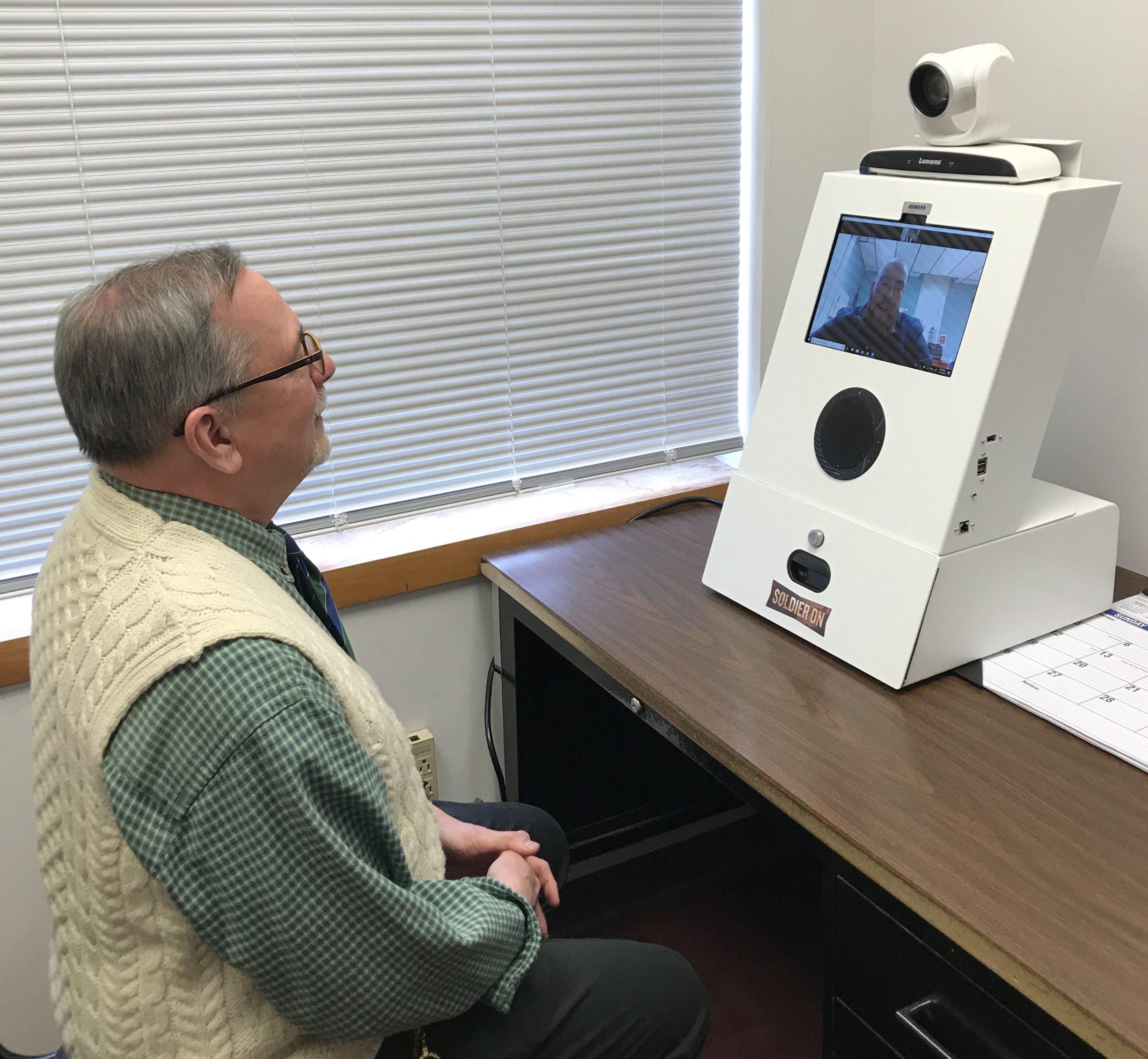Improving Access to Mental Health Care for Veterans
Use Case: Soldier On

The Challenge
Soldier On is a nonprofit committed to ending veteran homelessness. Launched in 1994 in Pittsfield, MA, the organization works in partnership with the Department of Veterans Affairs and other agencies to provide thousands of veterans with shelter and support and a continuum of care that includes immediate and long-term housing with services delivered where they live.
In early 2020, Soldier On’s team partnered with Let’s Talk Interactive in order to leverage telemedicine kiosks and software in transitional and permanent housing and jail programs. Shortly after the training programs were completed, the COVID-19 pandemic hit. This created an immediate and vast need to provide behavioral health services remotely in order to enable Soldier On to continue to serve the veteran community safely and effectively.
The Solution
Soldier On immediately began leveraging LTI’s telehealth kiosks and virtual conferencing software to conduct virtual visits with veterans. In addition to allowing both caseworkers and veterans to remain socially distant, Soldier On found that they were able to meet with some veterans who might otherwise ignore or skip appointments for care. They realized that these secure virtual visits also gave the organization a platform to help veterans with other issues, including financial literacy, social services, legal representation, housing needs, and even employment counseling.
“It’s no secret that many veterans suffer from anxiety, depression, anger, and PTSD,” said Bruce Buckley, CEO of Soldier On. “These emotional hurdles can lead to drug use, loss of support from family members, vagrancy, and in some cases, incarceration. The ability to give veterans access to the mental health support they need right at their fingertips will assist them in dealing with these challenges and help prevent them from repeating behaviors that lead to these unfortunate circumstances and get on the path to living a productive, independent life.”
For the last two years, Soldier On has utilized LTI’s telehealth solutions to host over 7,800 teletherapy sessions with veterans. Soldier On’s Executive Director of Clinical Services and Certified Teletherapy Provider, Kevin Cahill, also uses LTI for consultations with the Veterans Treatment Court, Hampshire County Jail, the U.S. Department of Veterans Affairs and the Berkshire Housing Association on a weekly basis.
The Results
Seeing more veterans more often.
Soldier On will be leveraging additional telehealth solutions-- including new kiosks-- as the organization continues to expand its services and veteran housing throughout the Northeast. “We are able to give veterans access to mental health support at their fingertips by leveraging LTI’s HIPAA-compliant online software in kiosks, televisions, smartphones, computers and tablet technology,” said Bruce Buckley, CEO of Soldier On. “As a result, we’re continuing to help them overcome mental health hurdles from PTSD, trauma and addiction, and ultimately lead a productive, independent life.”
LTI has served 7,832 sessions totaling 857,365 minutes, giving Solder On the ability to impact the lives of more than 3,200 veterans
Soldier On continues to grow its impact. The agency has partnered with WinnDevelopment and this fall will be opening the new Gordon H. Mansfield Veterans Community in Tinton Falls, NJ, which will provide 70 units of permanent housing for military veterans. Soldier On’s programs impact an estimated 3,200 veterans annually across four states, including Massachusetts, New Jersey, New York, and Pennsylvania. As Soldier On grows its presence throughout the region, LTI’s technology will enable the nonprofit to support all of its permanent housing residents with life skills, substance abuse counseling, and other groups.

“I am able to meet with up to 25 veterans per week, up from roughly 13 per week before we leveraged LTI’s telehealth services,” said Cahill. “LTI’s partnership came at the right time for us, just before COVID-19 required social distancing precautions, which prevented us from meeting in person with veterans. The technology not only enabled us to continue to provide behavioral telemental health services but allowed us to meet more often. The technology also provides more eye contact and facial cueing, because you’re not monitoring the rest of the body," said Cahill.